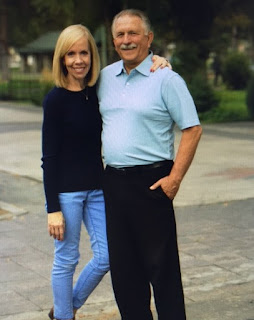
My daughters and I watched the LDS Women's Conference last night. Addie joined us for the first time as she is 8 years old today.
“These
three identities consistently intersect in my life and “function
simultaneously”, (Riggs, 2013, p. 229). My religious socialization led me to want to
be the healthiest I could be physically, socially, intellectually, emotionally
and spiritually. It included become
educated, knowledgeable of governments, language and even manners. My
religious beliefs defined what it meant to be a woman and ordered my priorities
of first loving God, putting family next and then striving to become a good
neighbor and citizen. It helped define
my focus as an older person who, sooner than later, will meet my maker and be
judged as one who was either valiant in the testimony of Jesus Christ or
not. I believe that living a righteous, holy
life will make one worthy of an ultimate belonging to and place in God’s family
in the world to come. I have read and
written much about the establishment of Zion.
To be worthy of a Zion society, one must be pure in heart and willing to
prove that that he or she will love and serve the Lord at every hazard and
serve their fellow man. The main premise
of Zion is that there should be no rich or poor among them, thus you can’t
promote Zion without promoting equality.
That goal, to me, can partially be accomplished by seeking the
betterment of all mankind in the social work profession.”
Next, we were to explain each identity in
terms of whether these were oppressed identities or not. You have to consider that every reference to
the word, “patriarchy” is considered consistent with extreme oppression in
social justice courses. My answer:
The
advantages of memberships in these groups, I feel, have outweighed any disadvantages
to me. I enjoy being older. My being true to LDS religious beliefs helped
me to honor my commitments to my marriage vows and I feel this positively
impacted the emotional security of my children.
Being true to LDS health standards, I believed increased both my
physical and emotional capacities in positive ways. I am free of any addictions to substances,
gambling or pornography. Because of a focus on service, I sought to
improve others’ circumstances. One
primary interest was in helping children at risk beginning in my twenties before marriage and again in my mid-fifties. I feel
strongly it is possible to be a good social worker and have strong religious
convictions. One of the dogmas I
believe in, is that everyone should be free to live according to the “dictates
of their own conscience”, (Smith, Joseph, 1838, The Articles of Faith 11). I have always
had challenges to my beliefs and limited persecution. On two occasions, I was an object of
discrimination in the work place because I was both older and female.
That response so inadequately portrays my incredible
gratitude for the freedoms that are mine because I know that as a woman, my
most important contributions to society center on fulfilling my roles as wife and
mother. Though we were limited to one
income for thirty years, and at times could only afford to frost one in three homemade cakes, it
was well worth any sacrifice we made. We
didn’t have money for the latest and greatest gaming. We only made it to Disneyland a few
times. But, to have gathered up my
little ones and taken them to Day Care would have ripped out my heart. To have additional priesthood responsibilities would have been oppressive. I
had plenty to do and I didn’t feel at all lacking for something in my life to
feel fulfilled. What I was doing
required my best thoughts, my finest efforts and study, and my most sincere
prayers. When it is necessary to be a working mother, due
to unusual circumstances, God has a way of making that up to both you and your
children. But, I felt that no talent or potential good I could have been in society
or positive attention I thought I might bring to the Church or mankind in
general, was more important than this. I didn’t come to earth to say or do things that would make
people like me. I came to earth to bear
witness of those things that I believe will bring happiness and peace in this life and Eternal
Life in the world to come. I love being a woman, I subscribe to the
doctrine and teachings of the LDS faith and I am hoping, in this season of my life, to learn and do those things that will better prepare me to meet God.
With love, Vicki Robinson


